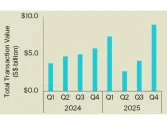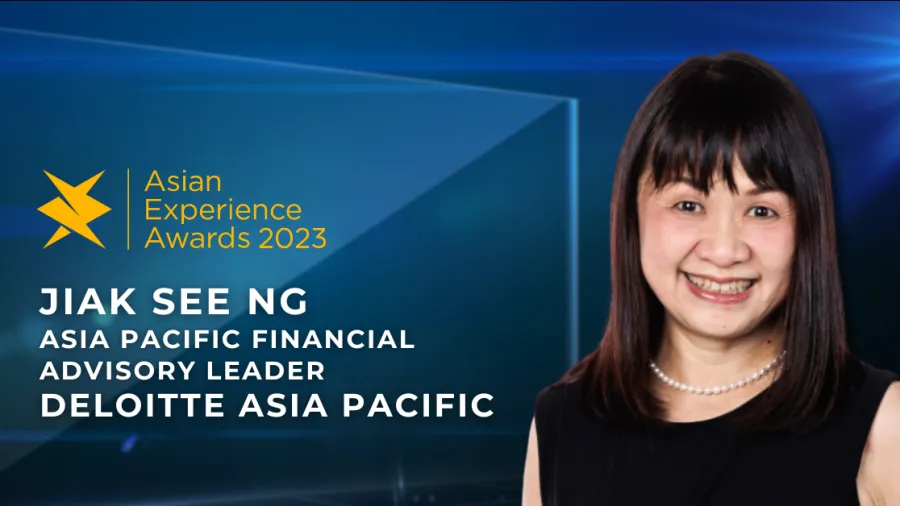
Deloitte Asia Pacific’s Jiak See Ng stresses customer-centricity, research, and agility crucial to creating meaningful brand experiences
Jiak See Ng, Deloitte Asia Pacific Financial Advisory Leader, sheds light on the transformative power of brand experiences in the business world.
In today's competitive business landscape, brand experiences have emerged as a critical determinant of success. The way customers perceive and interact with a brand goes beyond just products or services; it encapsulates emotions, values, and connections.
These experiences encompass every touchpoint a customer has with a brand—from its online presence to its physical stores, from its customer service to its social responsibility initiatives. In essence, brand experiences embody the brand's identity, values, and promise in a manner that resonates deeply with customers.
Jiak See Ng, with three decades of experience in advising clients on mergers and acquisitions (M&A) fundraising, IPO and growth strategy, has extensive knowledge of business transformations and strategic growth.
In this interview with Jiak See Ng, Asian Business Review explores the significance of brand experiences and uncovers her expert perspectives on the evolving realm of brand experiences.
Jiak See Ng underscored the role of innovation and technology in elevating brand experiences. She also discussed the cultural shifts, technological advancements, and changing consumer behaviours that are shaping the future of brand experiences.
How do you define a meaningful brand experience, and what elements do you believe are essential for creating such experiences?
A meaningful brand experience signifies a genuine emotional connection between consumers and the brand.
Brands create meaning and impact through authenticity and consistency; they personalise interactions with their customers, telling compelling stories with user-centric designs and experiences. Beyond top-of-mind recall, they prioritise quality, reliability, innovation, and they embrace a sense of community with a strong sense of social responsibility.
Ultimately, a meaningful brand experience aligns the values of the brand and its consumers, fostering lasting relationships beyond transactions.
What role do you think innovation and technology play in enhancing brand experiences, and how can companies effectively leverage them?
Innovation and technology significantly elevate brand experiences. Companies can leverage these tools to obtain data-driven insights, and with artificial intelligence (AI)-driven recommendations, companies are even more empowered to understand their consumers better, hyperpersonalise, and deliver experiences closer to what their customers desire. Additionally, immersive technologies such as virtual reality (VR) and augmented reality (AR) can create new, captivating interactions that can strengthen the connection with the consumers. I believe a new digital era is on the horizon as the metaverse evolves from a sci-fi concept into reality. This is fast becoming an extended playground for brands.
To effectively leverage innovation and technology, companies can consider the following:
- Adopt a consumer-centric approach that aligns technology choices with consumer preferences and behaviours to deliver meaningful experiences.
- Equip the team with the necessary skills and knowledge to manage and deploy the technology effectively.
- Integrate technology seamlessly to deliver the brand promise consistently and authentically.
- Regularly assess the impact of technology on consumer experiences and be agile to adjust strategies and operations accordingly.
- Prioritise data privacy and cyber security to protect the trust customers have in the brand.
How do you see the future of brand experiences evolving in the Asia Pacific region, and what trends or developments do you anticipate?
The future of brand experiences in the Asia Pacific region could potentially be shaped by a combination of cultural shifts, technological advancements, changing consumer behaviours, economic conditions, and regulatory changes. Here are some trends and developments that could play a significant role:
- Digital transformation: With the Asia Pacific region being a hub for technological innovation, we can anticipate that companies will continue to leverage technologies such as AI, VR, AR, and blockchain to create immersive and personalised experiences. In addition, mobile-first strategies will remain crucial given the widespread use of smartphones and high internet penetration rates across the region.
- E-commerce and social commerce: We can expect further integration of social media platforms with e-commerce as companies continue to invest in shoppable posts, live streaming and social commerce (for example, influencer marketing) to get closer to consumers and facilitate seamless purchasing. Additionally, as digital infrastructure improves in the emerging markets in the region, there will be more opportunities for e-commerce growth as companies start to connect with previously untapped consumer segments.
- Omnichannel experiences: Companies would likely focus on providing a seamless and consistent experience across various channels – in-store, online, mobile apps, social media and other touchpoints. Integrating these channels effectively is key to creating a unified brand experience that meets the needs and preferences of diverse customer segments.
- Hyper-personalisation, localisation, and cultural relevance: This will gain prominence given the region’s diverse cultures and languages. Companies that understand and respect local nuances will do well. We can expect that companies will increase their use of AI and data analytics to tailor experiences to specific geographical preferences, languages, and behaviours.
- Sustainability and ethical branding: Consumers in the region are becoming more concerned with environmental and social issues. Companies that prioritise sustainability and ethical practices in their brand experiences would resonate better with these consumers. This could involve transparent communication about sourcing, manufacturing processes, and social responsibility efforts.
- Health and wellness integration: There is a growing focus on health and wellness, and companies could look into incorporating elements into their experiences that promote well-being. This could range from offering wellness-related products and services to designing experiences that prioritise physical and mental health.
In your experience, what challenges do companies often face when trying to deliver meaningful brand experiences, and how can they overcome those challenges?
Delivering meaningful brand experiences can be a complex endeavour.
Some key challenges include a lack of customer understanding, maintaining consistency across channels, and technological integration. There will also be challenges around cost and budget, measurement of ROI (return on investment), and adapting to change, particularly around the role of the employee in managing the technology.
Overcoming these challenges requires a customer-centric approach, ongoing investments in R&D (research and development) and the willingness and agility to adapt and innovate based on evolving consumer needs and market dynamics.
As a board member of the Singapore Centre for Social Enterprise (raiSE) and the Yellow Ribbon Fund, how do you see the role of social responsibility and community engagement in shaping brand experiences?
Consumers today are more concerned with social and environmental issues, and they expect companies to demonstrate a genuine commitment to making a positive impact. There are great benefits not only to the consumers but also to the companies that authentically commit to social causes and engage with communities.
As a board member of raiSE and the Yellow Ribbon Fund, I firmly believe that this responsibility extends beyond superficial brand enhancements. It is imperative for companies to go deeper and commit to sustainable impact—a larger purpose driven by the genuine desire to contribute positively to our communities.
In light of the growing distrust of green or social washing by organisations, society’s perceptions are being upended by historic shifts from “me” to “we.” This will also have a profound impact on the corporate agenda. Companies will need to become better versions of themselves and step up investments in social causes and community engagement. For instance, these companies that are here for good have a more positive image and are seen as more authentic and trustworthy. They are able to foster an emotional bond and build loyalty as their company values align with consumer values, and thus, they can differentiate themselves from their competitors.
Moreover, they can effectively engage with the younger consumers (Millennials and Gen Zs) who value social responsibility and sustainability efforts, and in the long term, create a positive global impact and contribute to making the world a better place.
To leverage these benefits, companies should engage consistently, involve all stakeholders, communicate transparently, and measure and share their impact. By doing so, they can create meaningful and lasting brand experiences that resonate with their consumers.
As a judge at the Asian Experience Awards, what criteria do you consider when evaluating companies or organisations?
I will use a holistic approach in my evaluation that covers elements of consumer engagement, sustainability and social responsibility, innovation, adaptability, and overall impact. Companies can become a force for good in the world. By excelling in these areas, they will likely deliver meaningful brand experiences to their consumers

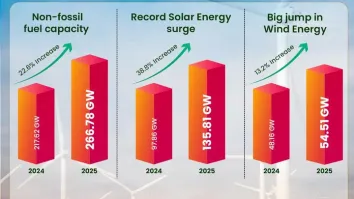






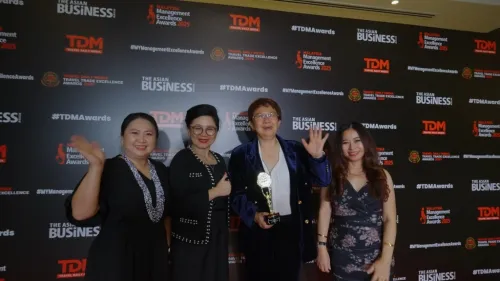
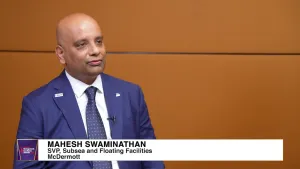
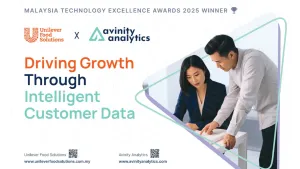
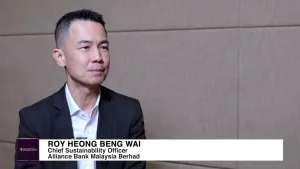
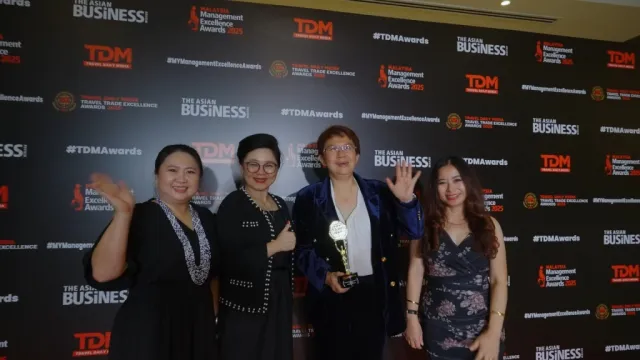

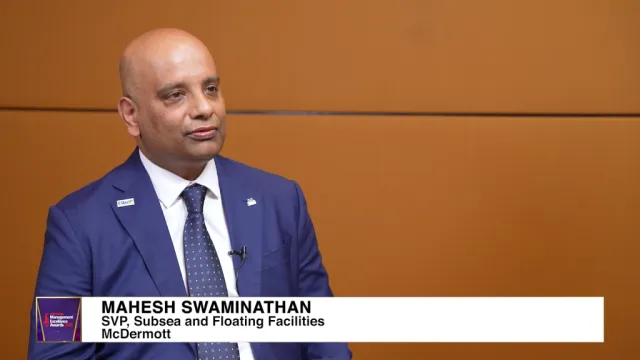

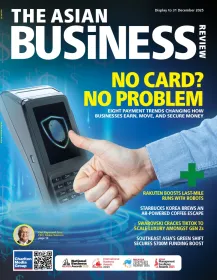
 Advertise
Advertise
